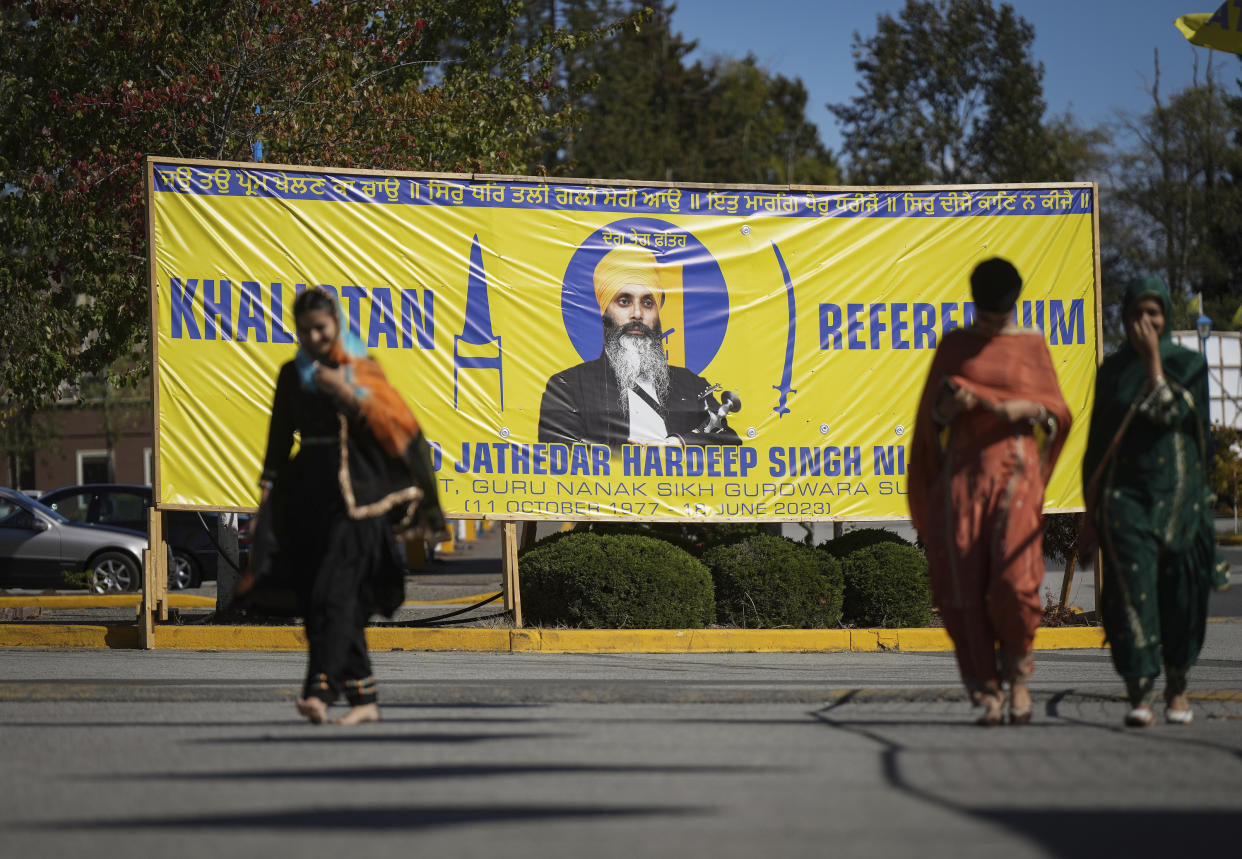India rejects Canada's accusation that it violated international norms in their diplomatic spat

NEW DELHI (AP) — The Indian government on Friday rejected any notion that it violated international law in asking Canada to recall diplomats so that both governments have roughly the same number stationed in each country.
Canada said Thursday it was recalling 41 of its 62 diplomats in India after what it said was New Delhi’s warning that it would strip their diplomatic immunity — something Canadian officials characterized as a violation of the Geneva Convention.
The back-and-forth comes amid a spat between the two countries over Canada’s allegation that India was involved in the assassination of a Sikh separatist in Canada.
India had not publicly stated it would withdraw diplomatic immunity from the Canadian diplomats, nor did it give a deadline for their departure. But it said it wanted Canada to reduce its number of diplomats in India to match the amount that India has in Canada.
“We reject any attempt to portray the implementation of parity as a violation of international norms,” India’s Ministry of Foreign Affairs said in a statement Friday.
Prime Minister Justin Trudeau reiterated Canada's concerns on Friday that India was contravening “a fundamental principle of international law and diplomacy," adding that "it is something that all countries in the world should be very worried about.″
India said there was a high number of Canadian diplomats in the country. “Their continued interference in our internal affairs warrant a parity in mutual diplomatic presence in New Delhi and Ottawa,” the statement said.
Canada has alleged India may have been involved in the June killing of Canadian citizen Hardeep Singh Nijjar in suburban Vancouver. India has accused Canada of harboring separatists and “terrorists,” but dismissed the allegation of its involvement in the killing as “absurd” and has taken diplomatic steps to express its anger over the accusation.
Trudeau said last month that there were “credible allegations” of Indian involvement in the slaying of Nijjar, a 45-year-old Sikh leader who was killed by masked gunmen in June in Surrey, outside Vancouver.
For years, India had said that Nijjar, a Canadian citizen born in India, had links to terrorism, an allegation Nijjar denied.
The U.S. government said it was concerned by the departure of the Canadian diplomats.
“Resolving differences requires diplomats on the ground,” Matthew Miller, a State Department spokesman, said in a statement. “We have urged the Indian government not to insist upon a reduction in Canada’s diplomatic presence and to cooperate in the ongoing Canadian investigation.”
The statement also urged India to follow international rules relating to diplomats.
India also has canceled visas for Canadians, and Canada has not retaliated for that. India previously expelled a senior Canadian diplomat after Canada expelled a senior Indian diplomat.

